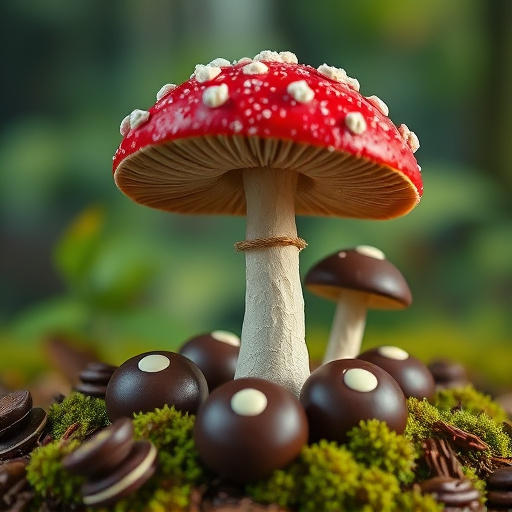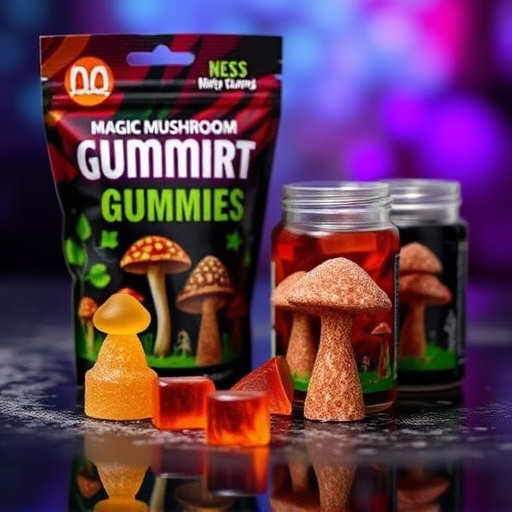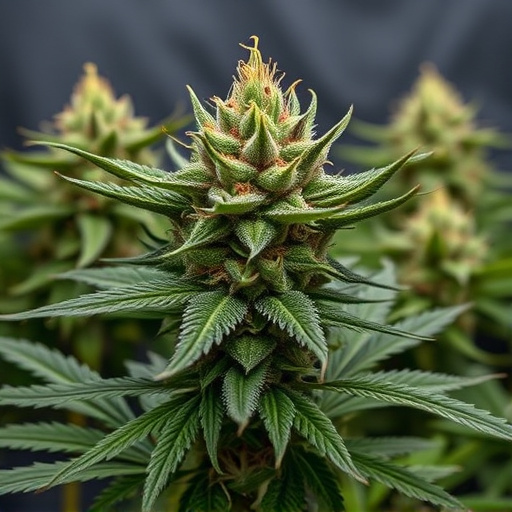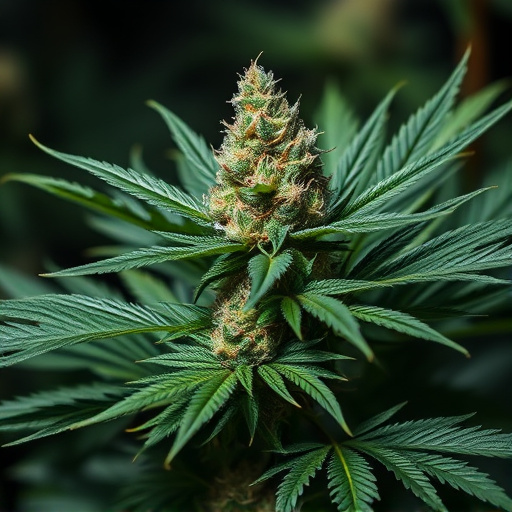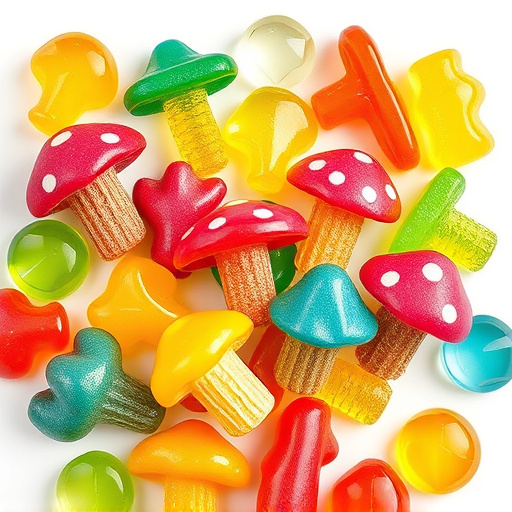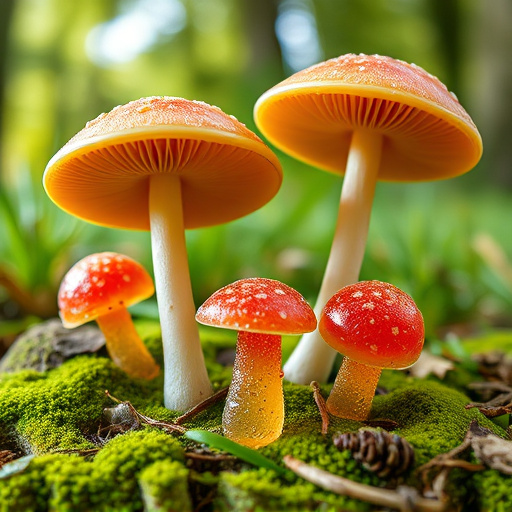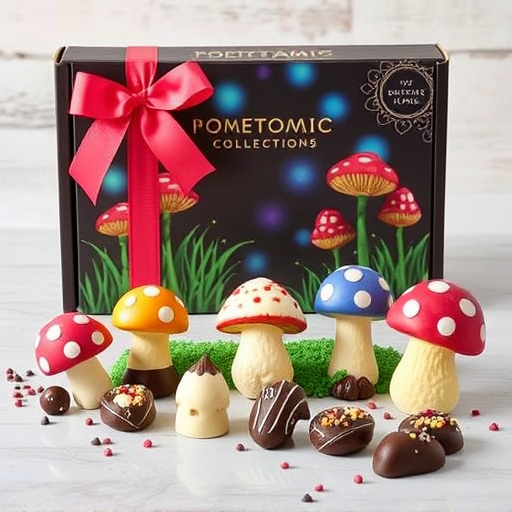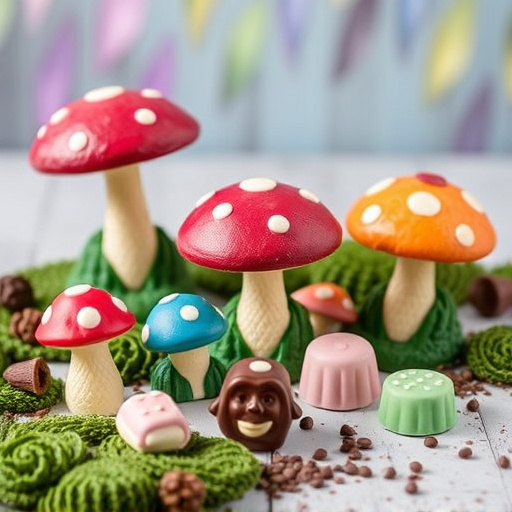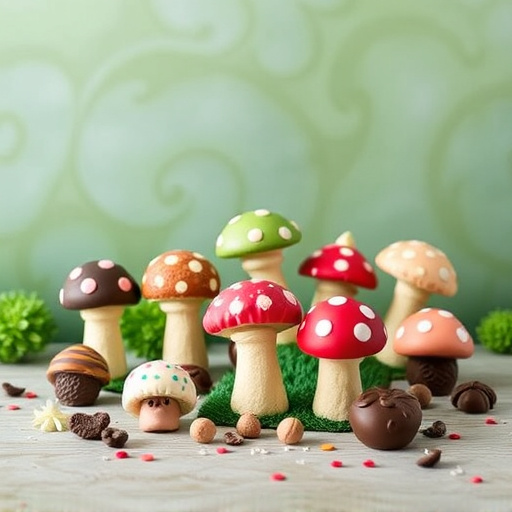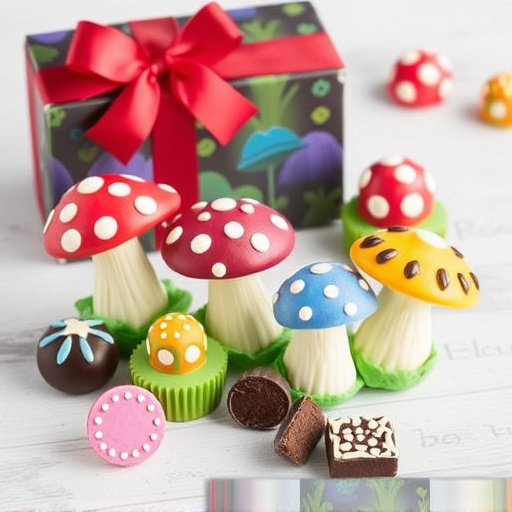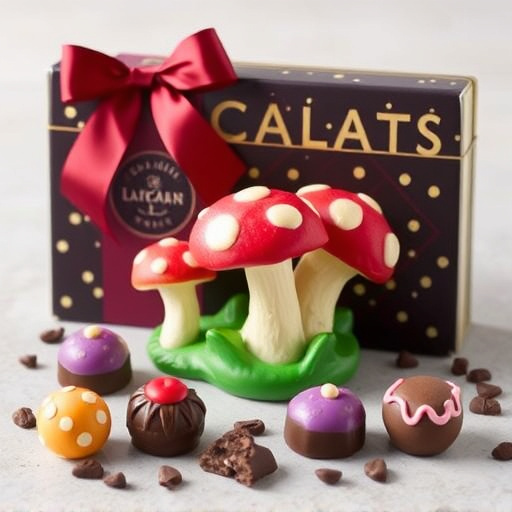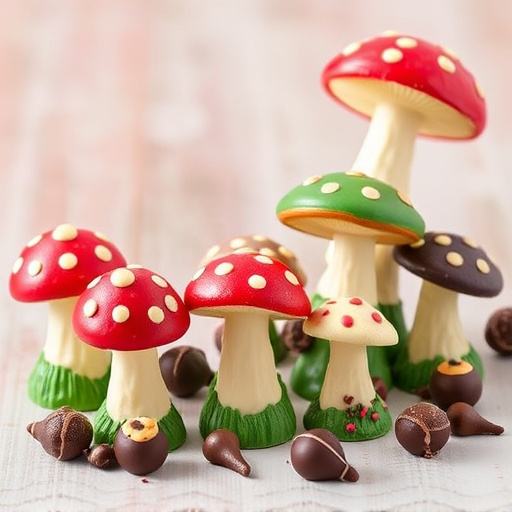The Legal Status of Magic Mushroom Chocolates varies globally, reflecting a complex regulatory landscape. Historically banned due to their psychoactive properties, these chocolates are now legal or decriminalized in some regions due to emerging therapeutic evidence. Companies produce lab-tested products under strict controls, addressing safety concerns. However, consumers face challenges navigating varying laws and potential health risks. A thoughtful approach is crucial when considering the Legal Status of Magic Mushroom Chocolates and their consumption.
“Discover the intriguing world of lab-tested magic mushroom chocolates—a innovative twist on traditional edibles. This comprehensive guide, ‘Understanding Lab-Tested Magic Mushroom Chocolates’, explores the science behind these unique treats, delving into their legal landscape across various regions. We weigh the benefits and risks, offering a balanced perspective for those curious about this controversial yet potentially therapeutic option. Uncover the intricacies of the legal status of magic mushroom chocolates and make informed decisions.”
- Understanding Lab-Tested Magic Mushroom Chocolates: A Comprehensive Overview
- The Legal Landscape: Unraveling the Status of Magic Mushroom Chocolates Across Different Regions
- Benefits, Risks, and Considerations: A Balanced Look at Consuming Lab-Tested Magic Mushroom Chocolates
Understanding Lab-Tested Magic Mushroom Chocolates: A Comprehensive Overview

Magic mushroom chocolates, also known as psilocybin chocolate, are a unique fusion of gourmet treats and psychedelic compounds. These chocolates contain small amounts of psilocybin, the active ingredient found in certain types of magic mushrooms, which have been legally recognized for their therapeutic potential in many countries. The legal status of magic mushroom chocolates varies greatly depending on your location; some places consider them completely illegal, while others have decriminalized or even legalized them for medical and research purposes.
Lab-tested ensures that the product’s ingredients and potency are verified by scientific analysis. This process is crucial for consumers to understand what they’re consuming and ensure safety. By understanding the legal landscape and undergoing rigorous testing, magic mushroom chocolates offer a novel way to experience psychedelic effects in a controlled environment. They provide an alternative to traditional methods, potentially opening doors for therapeutic applications in mental health treatment.
The Legal Landscape: Unraveling the Status of Magic Mushroom Chocolates Across Different Regions
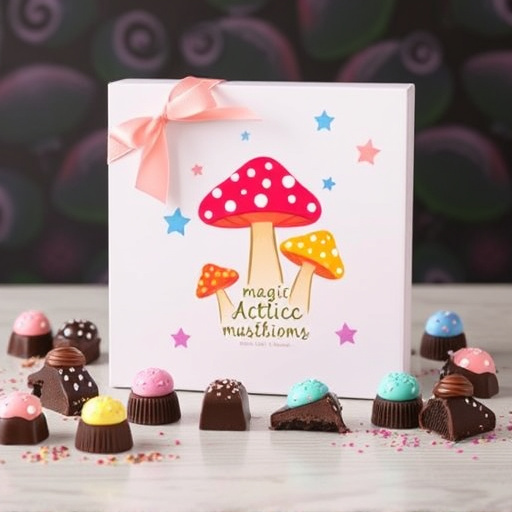
The legal status of magic mushroom chocolates is a complex and evolving topic, varying significantly across different regions. In many countries, psilocybin-containing foods like chocolates are strictly regulated or outright illegal due to their psychoactive properties derived from the psychedelic mushroom species Psilocybe. This stringent regulation stems from historical perceptions of these substances and ongoing concerns about public safety, especially regarding potential misuse and accidental ingestion by vulnerable populations.
However, a shifting cultural and political climate is driving changes in some jurisdictions. A growing body of scientific research is uncovering the therapeutic benefits of psilocybin, leading to its decriminalization or legalization for medical and/or recreational use in certain areas. This has opened doors for innovative companies to explore the production and distribution of lab-tested magic mushroom chocolates under strict controls. As a result, consumers in these regions now have access to safe, standardized products with guaranteed doses of psilocybin, offering a unique blend of ancient entheogenic traditions and modern scientific understanding.
Benefits, Risks, and Considerations: A Balanced Look at Consuming Lab-Tested Magic Mushroom Chocolates
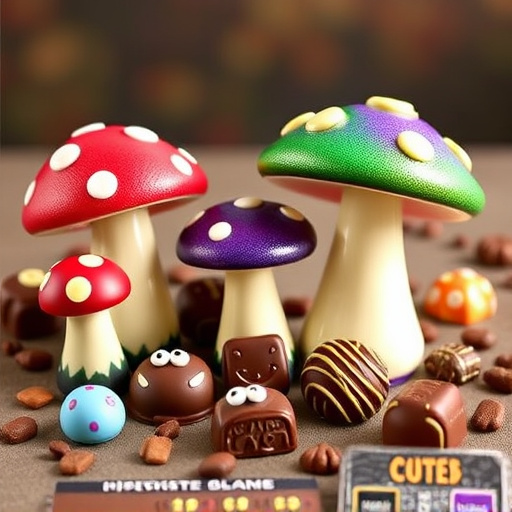
The legal status of magic mushroom chocolates is a complex topic that varies across regions, reflecting the shifting perceptions and regulatory frameworks surrounding psilocybin mushrooms. In some areas, these products are entirely illegal due to strict drug control laws, while other jurisdictions have decriminalized or even legalized them for medical or recreational use, with specific guidelines in place. This dichotomy can make it challenging for consumers to navigate the market safely.
Consuming lab-tested magic mushroom chocolates offers potential therapeutic benefits, including improved mood, reduced anxiety, and enhanced creativity. These compounds have shown promise in clinical trials for treating depression, PTSD, and end-of-life anxiety. However, there are also significant risks associated with their use. Side effects can include intense hallucinations, paranoia, and fluctuations in heart rate and blood pressure. The unpredictability of dosage and strain variations further complicates the potential outcomes, necessitating a balanced approach to consumption. Considering the legal implications, personal health, and societal perceptions is crucial before indulging in lab-tested magic mushroom chocolates.
In light of the evolving legal status of magic mushroom chocolates worldwide, it’s clear that this unique product presents both opportunities and challenges. As research continues to explore the therapeutic potential of psilocybin, navigating the current legal landscape is crucial for consumers and industry stakeholders alike. Understanding the benefits, risks, and considerations outlined in this article is a vital step towards responsible and informed consumption. By staying updated on regulatory changes, we can ensure that lab-tested magic mushroom chocolates are enjoyed safely and ethically within the framework of each region’s legal status.

